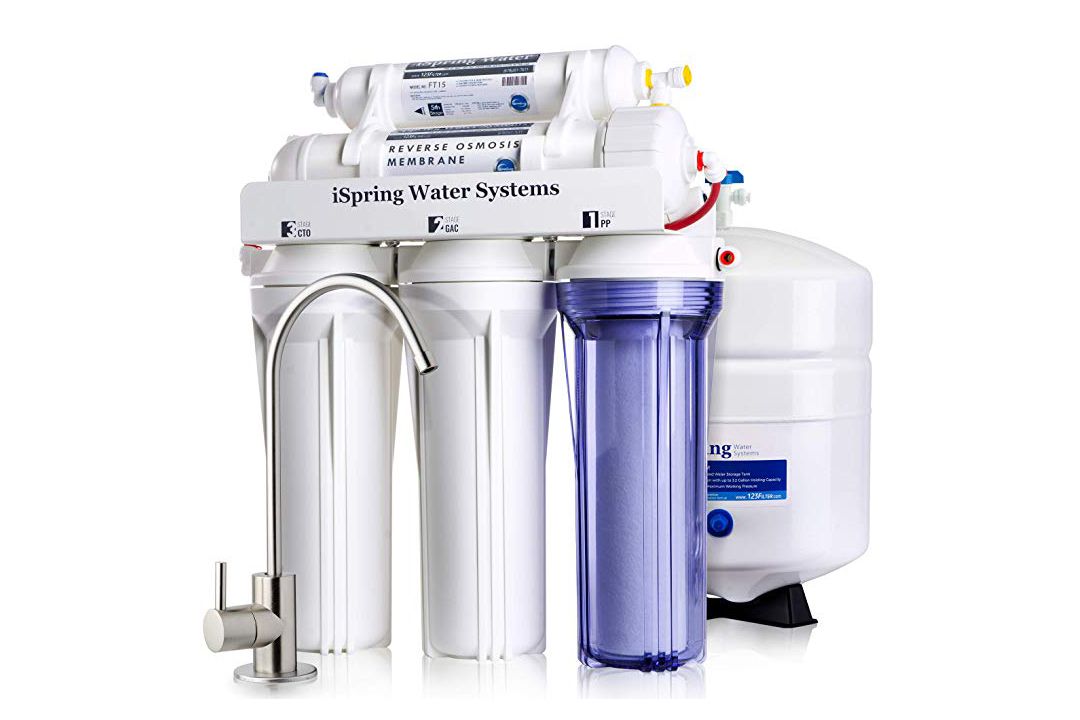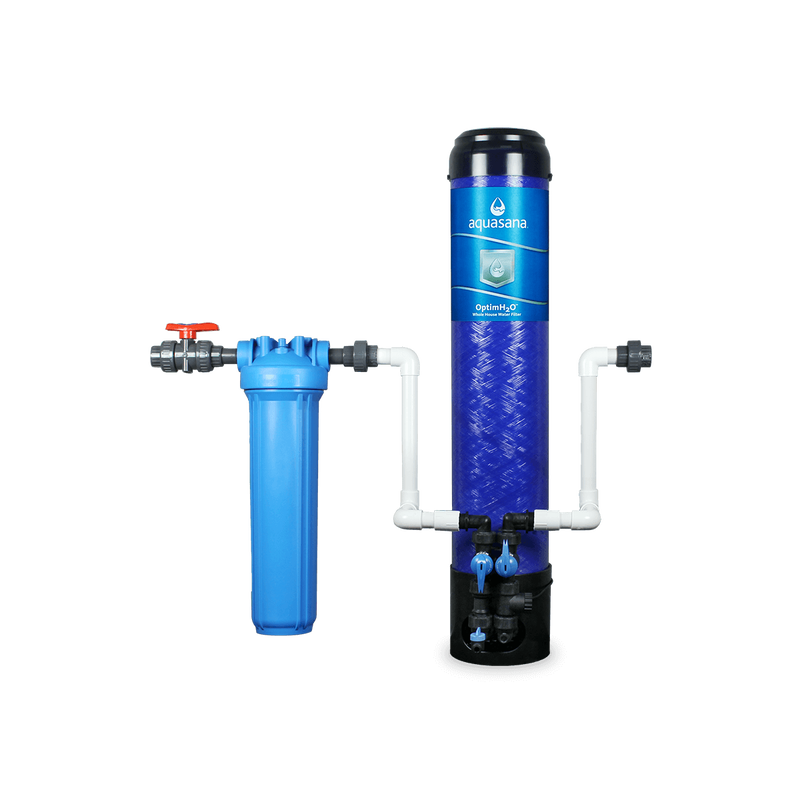Water filters come in many different shapes, sizes, and types. There are whole-house water filters, countertop water filters, under-sink water filters, and even faucet water filters.

1. The different types of water filters and what they do
There are a lot of different types of water filters on the market, so it can be tough to decide which one is right for you and your family. But, with a little research, you can find the perfect water filter for your home. Here are some of the different types of water filters and what they do:
Whole house water filters
As the name suggests, whole house water filters are designed to filter all of the water in your home. This means that every time you turn on the faucet, shower, or use the dishwasher, filtered water will be used. Whole house water filters are typically installed at the point where water enters your home.

Countertop water filters
Countertop water filters are designed to filter water from a single source, such as your kitchen sink. They are easy to install and don’t require any plumbing changes. Countertop water filters typically need to be replaced every few months.
Under sink water filters
Under sink water filters are similar to countertop water filters, but they are installed under your kitchen sink. Under sink water filters can filter all of the water that comes out of your kitchen faucet or just cold water. Like countertop water filters, under sink water filters typically need to be replaced every few months.
Faucet water filters
Faucet water filters are attached to your kitchen faucet and filter the water as it comes out of the faucet. Faucet water filters are easy to install and don’t require any plumbing changes. Faucet water filters typically need to be replaced every few months.
Water pitcher filters: water filter pitchers are designed to filter water from a single source, such as your kitchen sink. They are easy to use and don’t require any plumbing changes. Water pitcher filters typically need to be replaced every few months.
The benefits of using a water filter
There are many benefits to using a reverse osmosis systems, no matter what type of filter you choose. Water filters can remove contaminants from your water, improve the taste of your water, and extend the life of your appliances.
Whole house water filters are installed on your main water line, so they filter all the water coming into your home. This can be a great way to remove contaminants before they have a chance to enter your home. Countertop and under sink water filters are installed on the water line going to your sink, so they only filter the water you use for drinking and cooking. Faucet water filters attach directly to your faucet, so they are easy to install and remove when you need to.
No matter which type of filter you choose, you can be sure that you and your family are drinking clean, safe water.
How to install a water filter in your home
Installing a water filter in your home is a great way to ensure that you and your family have access to clean, safe drinking water. There are a few different ways to install a filtration methods, depending on the type of filter you have and where you want to install it.
If you have a whole house water filter, the installation will be more involved, as the filter will need to be installed at the main water supply line for your home. This is generally best done by a professional plumber or installer.
If you have a countertop water filter, the installation is much simpler, as you can simply attach the filter to your kitchen sink faucet. Most countertop filters come with all the necessary hardware and instructions for installation.
Under-sink water filters are also relatively easy to install, though you may need to drill a hole in your sink cabinet to accommodate the filter’s water line. As with countertop filters, most under-sink filters come with complete instructions and all the necessary hardware.
Finally, faucet water filters are the easiest type of filter to install, as they simply attach to the end of your kitchen faucet. No drilling or other installation is required.
Whichever type of ion exchange filters you choose, be sure to follow the manufacturer’s instructions carefully to ensure proper installation and optimal performance.
Frequently Asked Questions
What is the most effective filter?
The most effective filter will depend on your specific needs. If you are looking for a filter to remove lead from your water, for example, then a reverse osmosis system or reverse osmosis filters would be the best option. If you are concerned about contaminants such as chlorine or bacteria, then a activated carbon filters block filter would be a better choice.
How do I choose a water filter for my home?
There are many factors to consider when purchasing a water filter for your home. The size of your home, the type of water you have, and your budget will all play a role in determining the best water filter for your needs.
Whole house water filters are ideal for larger homes or for those who want filtered water at every tap. These filters can be installed at the point of entry for your home’s water supply, and will filter out contaminants before they enter your home’s plumbing.
Countertop reverse osmosis water filters are a good option for those who want filtered water but don’t want to install a whole house system. These filters can be placed on your countertop or under your sink, and will filter your water as you need it.
Faucet water filters are a convenient option for those who want filtered water but don’t want to install a whole house system or a countertop filter. These filters attach directly to your faucet, and will provide filtered water whenever you turn on the faucet.
Which water filter removes the most contaminants?
The best whole house water filter is the Aqua-Pure AP903.
It can remove up to 99.99% of contaminants, including lead, chlorine, and fluoride.
What filter kills bacteria?
The best water filter for bacteria is the Aqua-Pure AP903. It can remove up to 99.99% of contaminants, including bacteria.
Do water filters remove viruses?
Most water filters will not remove viruses, but the Aqua-Pure AP903 is designed to remove up to 99.99% of all contaminants, including viruses.
When should I stop using water filter?
You might be wondering when is the best time to stop using a water filtration system. Depending on the type of water filter you have, you may need to replace it every few months or every year. Some water filters are designed to last for up to 10 years.
If you’re not sure how often to replace your water filter, check the manufacturer’s instructions. You can also call the customer service number to ask.
What are the disadvantages of filtered water?
Whole house water filters, countertop water filtration systems, under sink water filters, and even faucet water filters all have their disadvantages.
The main disadvantage of using a whole house water filter is that it can be expensive to install and maintain. Additionally, whole house water filters can reduce the flow rate of your water, which can be a nuisance.
What is the best water for kidneys?
The best water for kidneys is filtered water. This is because filtered water has been treated to remove impurities that can damage your kidneys.
What filter removes E coli?
Many water filters can remove E coli from your water. However, the best way to remove E coli from your water is to boil it for at least one minute. Boiling will kill any E coli bacteria in your water.
Do filters really clean water?
Yes! But it depends on the type of filter you have.
Why you shouldn’t filter tap water?
Tap water is treated with chlorine to kill bacteria, making it safe to drink. However, some people don’t like the taste of chlorine and prefer to filter their water.
Does bacteria grow in Brita filters?
No, bacteria will not grow in Brita filters. The filtering process gets rid of the food that bacteria need to survive, so they will not grow in Brita filters. However, it is important to note that Brita filters do not sterilize water, so bacteria may still be present in the filtered water.
Is it OK to drink filtered tap water?
Yes, it is perfectly safe to drink filtered tap water. Filtered water has been treated to remove impurities that can be harmful to your health.
Conclusion:
If you’re in the market for a new water filter, it’s important to know what your options are. There are many different types of water filters on the market, and each has its own set of advantages and disadvantages. In this blog post, we’ve discussed some of the most popular types of water filters, so you can make an informed decision about which one is right for you. Thanks for reading!
